3D printer stepper motor drivers control the rotation of motors and can cause noise. Read on for the best stepper motor driver options!
Step Right Up
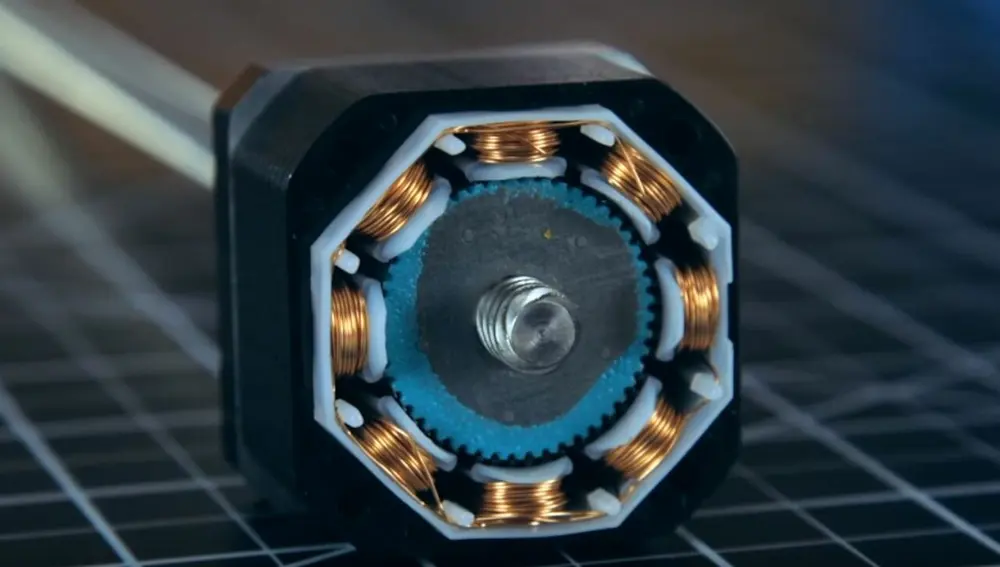
Stepper motors are the specific type of high-torque motor commonly used in 3D printers to control the moving parts. Stepper motors work with a magnetically sensitive shaft that moves when the electromagnetic coils surrounding it are powered. When only one coil is powered fully, this is called a full step because the shaft moves one entire step.
However, the shaft can also move by microsteps, achieved by powering two electromagnetic coils at different levels. Microstepping is a more precise way of movement with its own benefits and downsides. There are different levels of microstepping depending on the fraction of a full step the motor moves (e.g. 1/32, 1/64).
Stepper motor drivers are the component on a 3D printer’s mainboard responsible for controlling the power given to the electromagnetic coils on a stepper motor to rotate the motor’s shaft a specific distance. Stepper motor drivers and their microstepping abilities have a significant effect on the noise produced by the printer.
If you used stepper motors only equipped for full steps to achieve a half step, the electromagnetic coils would constantly be receiving and losing power, and the shaft would oscillate between the two coils in an approximation of the halfway point. This oscillation would cause a lot of vibration, making a lot of noise. The better a stepper motor driver’s microstepping abilities, the fewer vibrations it will make and the quieter the printer will be.
There are many different brands and models of stepper motor drivers, and they all vary in quality and effectiveness. In this article, we’ll go over a few different stepper motor drivers that are great for 3D printers. But first, let’s look at how we selected items for this list, and what you should consider when looking to replace your printer’s stepper motor drivers.
Considerations
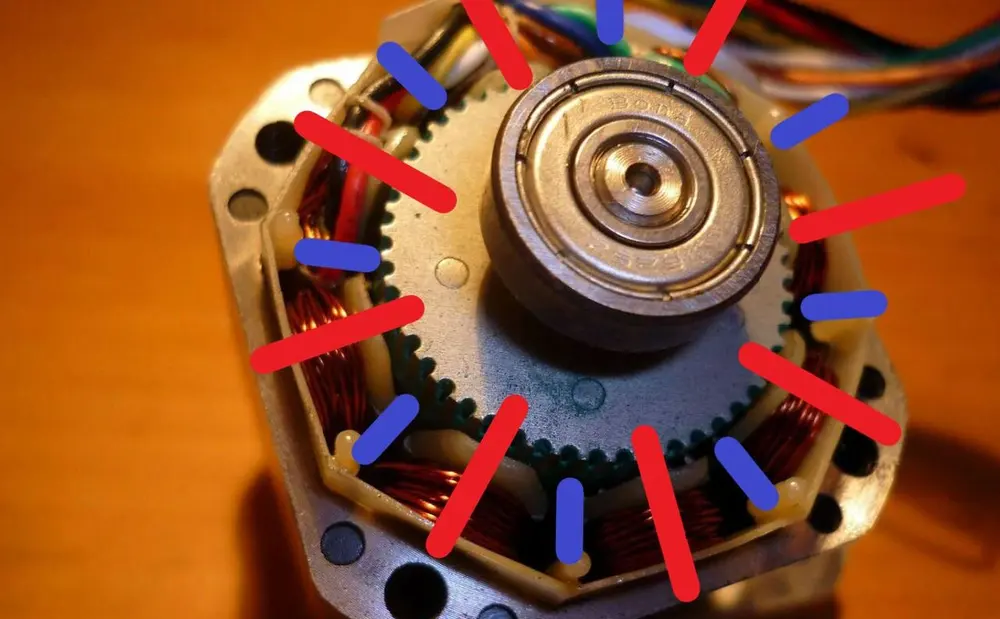
In putting together this list, one thing we took into account is the stepper motor driver manufacturers, looking for reputable brands with experience in the electronics field. But brands aren’t everything: Another thing to keep in mind is the microstepping rating, which is the smallest microstepping fraction the stepper motor driver can handle. A smaller microstepping rating (indicated by a high denominator of the microstepping fraction) enables a higher level of detail on prints, but lower values are usually associated with a higher price. For this reason, we’ve diversified our selections to cover a range of microstepping ratings.
Another consideration is the compatible driver modes, sometimes called chopper modes. Driver modes define how the stepper motor driver operates, and certain firmware features (e.g. Marlin‘s linear advance) only work with certain modes. We’ve chosen various driver models that work with the most popular chopper modes, so you’ll have options that are sure to work for the way you use your printer.
Lastly, as with any product, it’s important to look at the price of the stepper motor driver. Obviously, the more features a driver has, the higher its price, but you may be confined to a certain budget, or maybe you only need the most basic option. For this reason, we’ve selected drivers that cover a wide price range.
So, now that we know what we’re in for, let’s dive into the list!
TMC2208
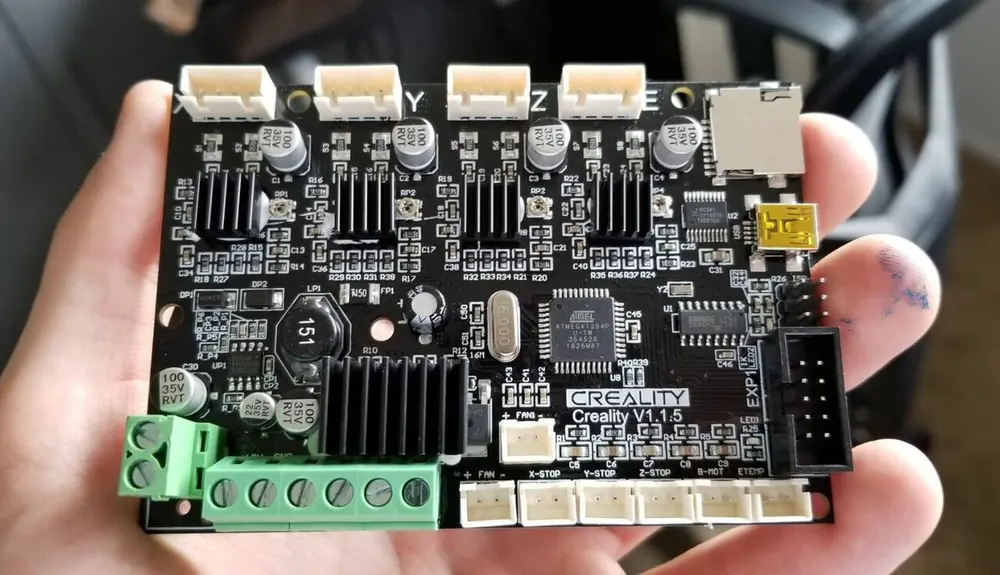
Our first selection is the popular TMC2208, developed by the company Trinamic Motion Control, a well-known electronics manufacturer that will appear a few times on this list. TMC2208 drivers are common in 3D printer mainboards, like the Creality V1.1.5 board, and users have noted that they’re effective in making your printer very silent.
Unfortunately, TMC2208 drivers aren’t compatible with Marlin’s linear advance feature, which can improve your machine’s extrusion to increase a print’s dimensional accuracy. While this is a disadvantage, these drivers can handle precise 1/256 microsteps, which is more or less the industry standard for higher-end stepper motor drivers. This low of a microstep can assist your machine in printing extra finer detail on parts.
- Developer: Trinamic Motion Control
- Microstepping rating: 1/256
- Driver modes: StealthChop2, SpreadCycle
- Price: ~$4
TMC2209
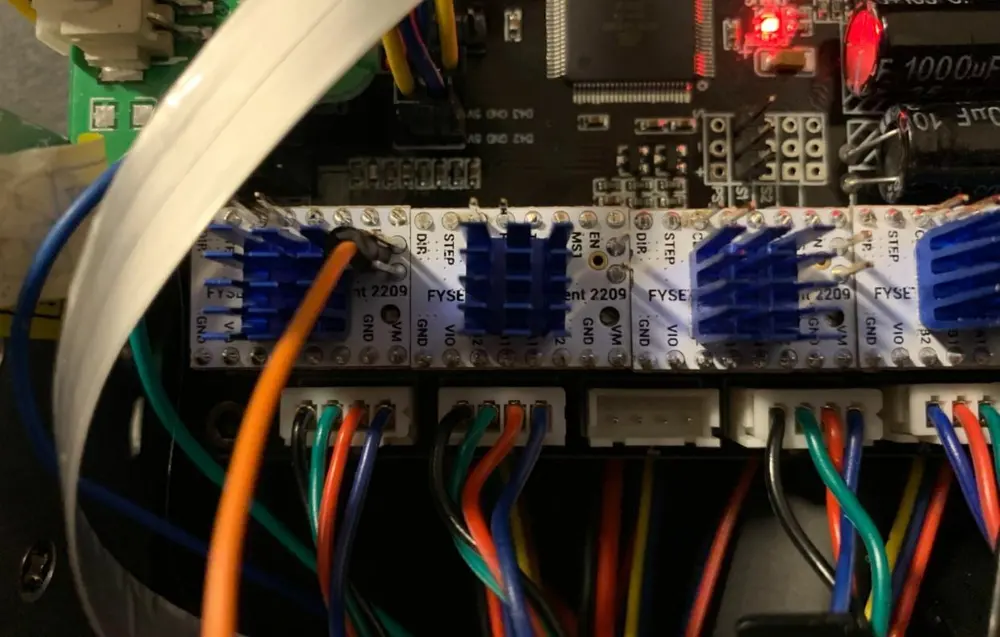
The TMC2209 drivers are Trinamic Motion Control’s improved version of the TMC2208 drivers, with some new features over their predecessor. Like most modern stepper motor drivers, TMC2209s are known to make your 3D printer very quiet, and you can find them on a few mainboards, like the BigTreeTech SKR E3 V1.1.
Unlike TMC2208s, TMC2209 drivers do work with Marlin’s linear advance feature, while both are rated for 1/256 microstepping. These drivers can also perform sensorless homing, a feature that avoids using endstops and can save money if you’re building a printer. A downside of these more advanced (and expensive) drivers is that they can get pretty hot if not properly cooled, according to TeachingTech.
- Developer: Trinamic Motion Control
- Microstepping rating: 1/256
- Driver modes: StealthChop2, SpreadCycle, with features like CoolStep, StallGuard4, and MicroPlyer
- Price: ~$6
A4988
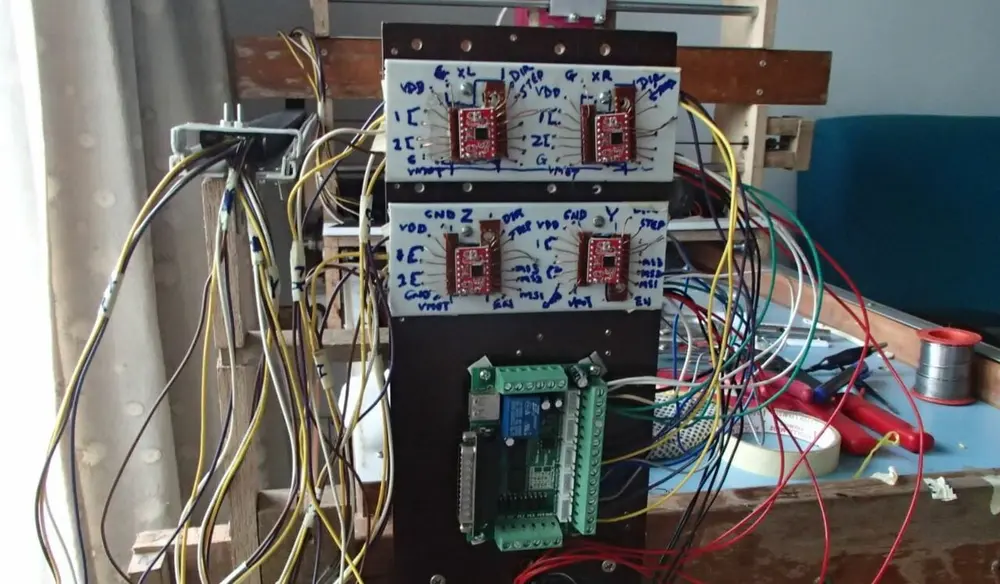
The A4988 driver is on the older end of this list, designed by Allegro MicroSystems. While the A4988 model driver isn’t the latest or greatest driver model, it’s a reliable option for 3D printers.
A4988 drivers won’t make your motors as quiet as the newer drivers (e.g. TMC2209), and they can be found integrated into lower-end mainboards like Creality’s earliest Ender 3 boards (V1.1.2 and V1.1.3). Depending on the manufacturer, these drivers are usually rated down to 1/16 microstepping, which certainly doesn’t stand out from the crowd, but may meet your minimum requirements.
Unlike most drivers nowadays, the A4988 drivers don’t have many compatible modes, meaning they won’t be able to perform some 3D printing features (e.g. linear advance). Also, in some reviews, users have noted that adjusting the driver’s potentiometers (voltage divider tool) can be difficult. Still, they’re a tried-and-tested option that certainly won’t break the bank!
- Developer: Allegro MicroSystems
- Microstepping rating: 1/16
- Driver modes: Mixed current decay, slow current decay, with an automatic selection feature
- Price: ~$2
TMC2100
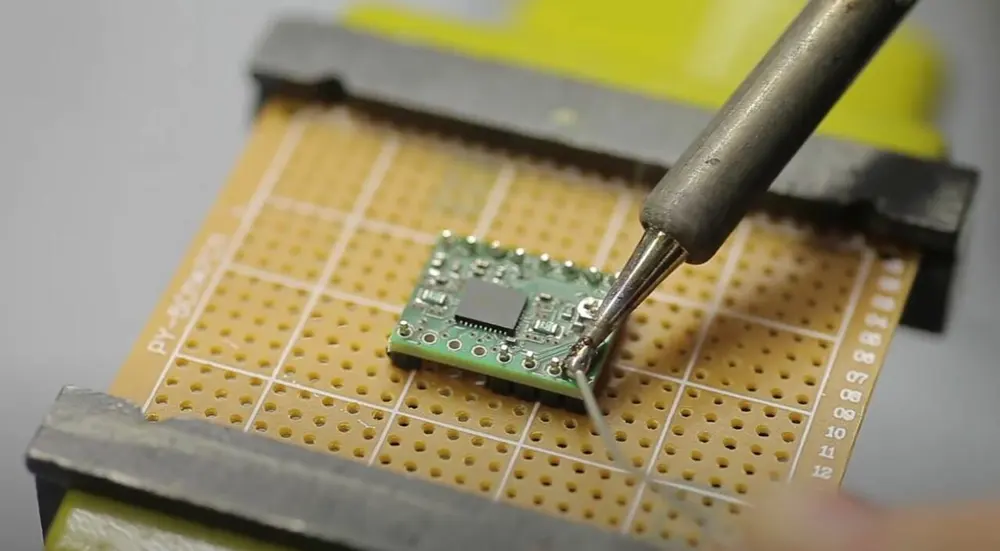
The TMC2100 driver is another model by Trinamic Motion Control and a great option for those looking for a mix between performance and price. TMC2100 drivers are pretty well-liked in the 3D printing community, with popular makers like Thomas Sanladerer giving positive reviews to the driver model. This type of driver is fairly effective in quieting your printer, and these drivers are usually attached to a mainboard rather than integrated into the PCB.
TMC2100 drivers can handle as low as 1/256 microstepping, which is great for the moderate price of these drivers. Just be aware that these drivers tend to get pretty hot and have been known to skip steps in StealthChop mode, according to TeachingTech.
On this note, the TMC2100 drivers can be used in a few drivers modes, including StealthChop and SpreadCycle. In fact, this model driver was one of the first TMC drivers capable of operating in the SpreadCycle mode, a unique current control operating mode.
- Developer: Trinamic Motion Control
- Microstepping rating: 1/256
- Driver modes: StealthChop, SpreadCycle
- Price: ~$5
DRV8825
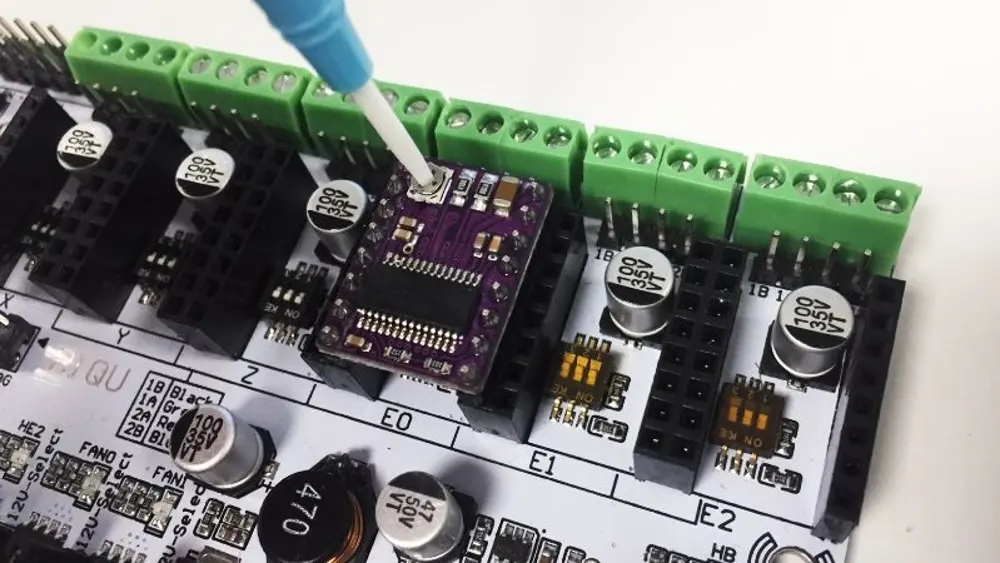
Next, the DRV8825 driver is made by Texas Instruments, a manufacturer of various chips for computers and other electronics. It’s comparable in price to Allegro’s A4988 drivers, so very affordable compare to newer options. DRV8825 drivers, like many of the older drivers, are usually added onto open-design mainboards and not integrated into the board.
As seen in one user’s test video, the DRV8825 driver is decently effective in quieting your printer’s motors, which is impressive considering when the DRV8825 model was made. However, it’s important to mention that this type of driver still isn’t as quiet as many newer models.
The DRV8825 drivers have a pretty low microstepping rating of 1/32, but this should suffice if you’re printing parts with limited detail. However, according to some reviewers, these drivers have been known to yield noticeable imperfections on the surface of 3D prints. This is a significant disadvantage because your drivers should be the least of your worries when tuning your 3D printer.
- Developer: Texas Instruments
- Microstepping rating: 1/32
- Driver modes: Low current sleep, slow current decay, mixed current decay, fast current decay
- Price: ~$2
TMC2130
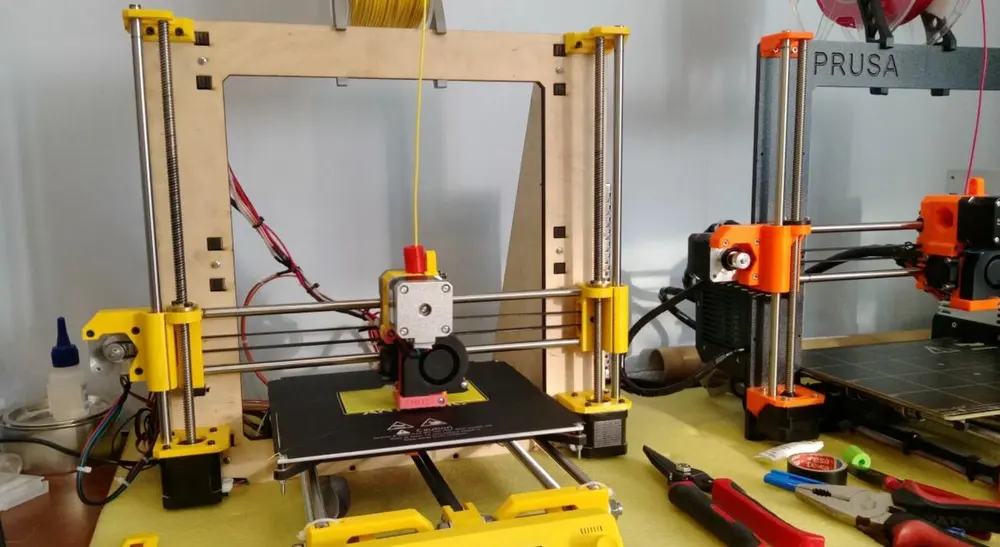
The TMC2130 drivers are another popular driver model, most commonly found under the hood of Prusa Research’s printers and Prusa clones. While most drivers are made for a wide variety of different motion control uses, Trinamic Motion Control designed the TMC2130 specifically for 3D printers.
This type of driver is on the more expensive side of stepper motor drivers, but what it lacks in affordability, it makes up for in quality. TMC2130 drivers can make your 3D printer super silent, and this hasn’t gone unnoticed in the 3D printing community, with makers mentioning that they could only hear fan noises.
The TMC2130 model driver is capable of 1/256 microstepping and can operate in either StealthChop or SpreadCycle mode. This model driver is also equipped with a few different TMC technologies, including StallGuard2, CoolStep, stall detection, short protection, ChopSync, and passive breaking. These features can improve your machine’s prints by upping your driver’s performance and making them more reliable and smarter, like measuring stepper motor load.
- Developer: Trinamic Motion Control
- Microstepping rating: 1/256
- Driver modes: StealthChop, SpreadCycle, with other features like ChopySync, StallGuard2, MicroPlyer, and CoolStep
- Price: ~$8
TMC2225
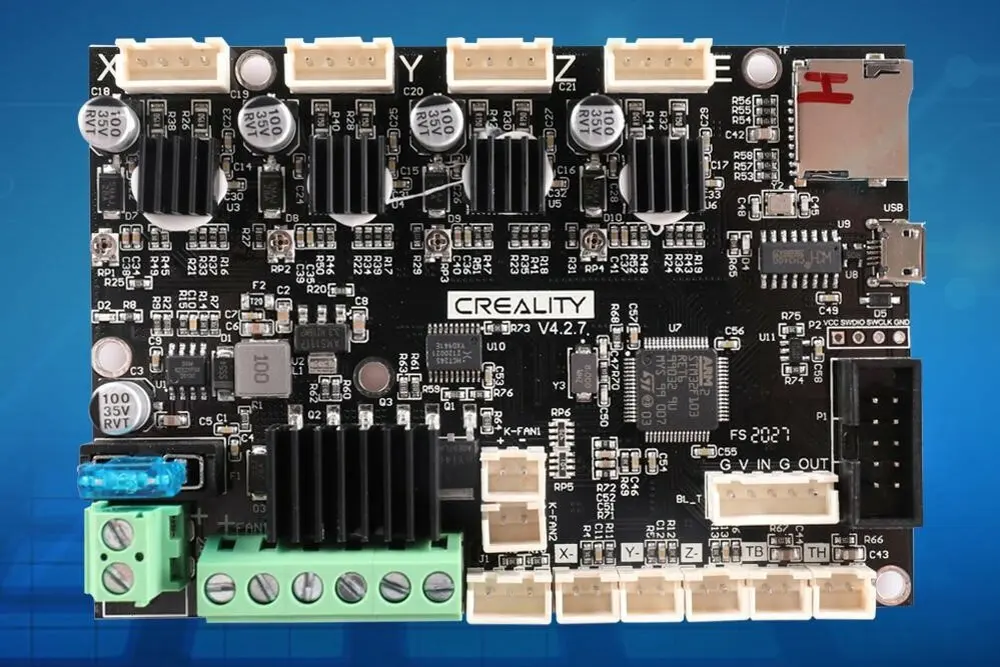
Found in the popular Creality V4.2.7 silent board, KingRoon KP3S board, and other recent 3D printer mainboards, TMC2225 drivers are a great option for silent printing at an affordable price. These drivers are so quiet that many reviewers of the V4.2.7 board have noted that the TMC2225 drivers have silenced their printer’s motors so much so they can only hear the fan noise.
Depending on the exact type of TMC2225 driver, the driver can handle down to 1/256 microsteps (the V4.2.7 board is rated to 1/32), which is great for printing models precisely. A downside of this model driver is that it doesn’t work with Marlin’s linear advance feature when wired in the standalone mode.
- Developer: Trinamic Motion Control
- Microstepping rating: 1/256
- Driver modes: StealthChop2, SpreadCycle
- Price: ~$5
LV8729
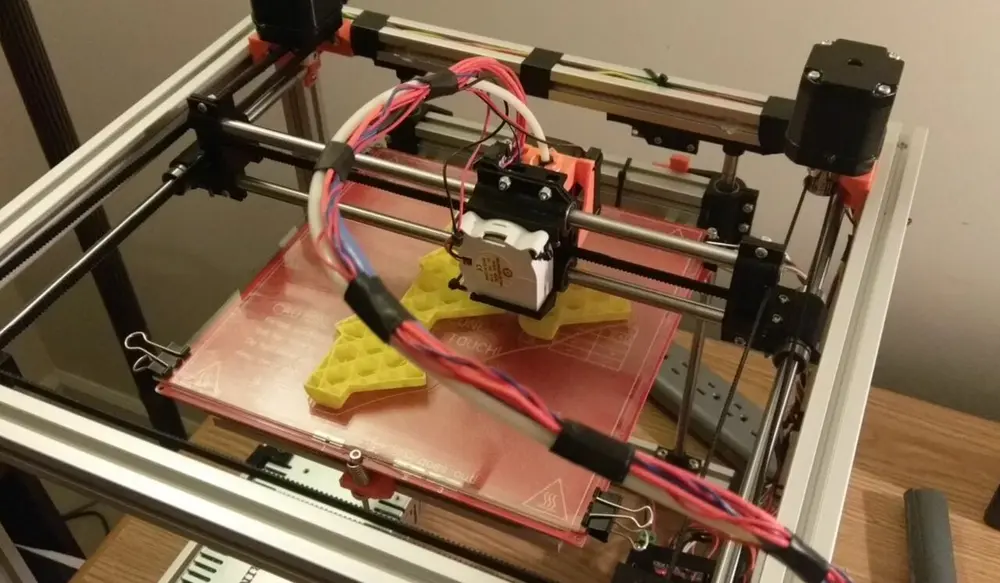
Lastly, the LV8729 driver is a less popular driver option but is still a great choice due to its low price. This driver isn’t integrated into any popular mainboards, but it’s available to purchase as an attachment for open-ended RAMPS boards (popular model of 3D printer mainboard).
This model has a few improved features over the A4988 driver but is still below the calibre (and price) of some others on our list. Based on the audio from TeachingTech’s test, this driver is louder than most modern drivers but slightly quieter than the A4988 driver. Still, some users have claimed that the driver can handle fast speeds (like 170-mm/s fast) pretty well.
The LV8729 driver is capable of 1/128 microstepping, making the driver great for achieving more dimensional accuracy at a low cost. The LV8729 driver model also requires minimal wiring to achieve this value of microstepping, but the driver doesn’t have many other features or optional modes.
- Developer: OnSemi
- Microstepping rating: 1/128
- Driver modes: StealthChop
- Price: ~$4
Source: The 8 Best Stepper Motor Drivers for 3D Printers | All3DP